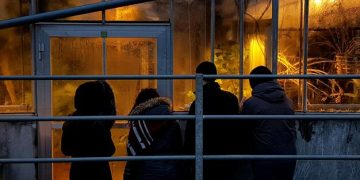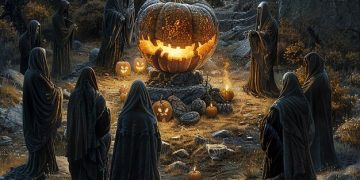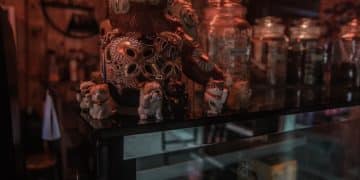New Study: 70% of Americans Believe in Paranormal Phenomena
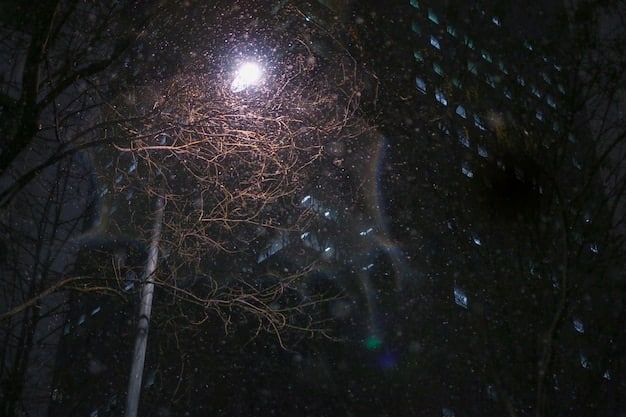
A recent study indicates that 70% of Americans believe in paranormal phenomena, revealing a significant shift in societal beliefs driven by media representation, unanswered questions, and personal experiences.
A fascinating new study has revealed something quite extraordinary: New Study Reveals 70% of Americans Believe in Paranormal Phenomena: What’s Driving the Trend? This raises intriguing questions about why so many people are open to the possibility of ghosts, UFOs, and other unexplained mysteries.
The Rise of Paranormal Belief in America
The prevalence of paranormal beliefs in the United States has seen a notable increase over the past few decades. This isn’t just about a few fringe individuals; it represents a significant portion of the population.
Historical Context of Paranormal Beliefs
Belief in the paranormal isn’t new. Throughout history, various cultures have held beliefs in spirits, omens, and supernatural forces that affect daily life. However, the form and intensity of these beliefs have evolved, influenced by scientific advancements, cultural shifts, and media exposure.
Increased Media Representation
One key factor driving this trend is the increased representation of paranormal themes in media. Television shows, movies, and documentaries that focus on ghost hunting, UFO sightings, and psychic abilities have become increasingly popular.
- Influence of Reality TV: Shows like “Ghost Hunters” and “Paranormal State” present paranormal investigations in a seemingly realistic and accessible manner, piquing viewers’ curiosity.
- Fiction and Film: Movies and TV dramas often incorporate paranormal elements, blurring the lines between fact and fiction and sparking interest in the unexplained.
- Documentaries and Podcasts: These formats offer in-depth explorations of various paranormal topics, often featuring experts and eyewitness accounts.
The media doesn’t necessarily promote belief, but it does keep these topics in the public consciousness, making them more acceptable and even intriguing to explore.
The Role of Unanswered Questions
Science has made tremendous strides in explaining the natural world, but there are still many phenomena that remain unexplained. This uncertainty can create an opening for paranormal beliefs to fill the gaps.
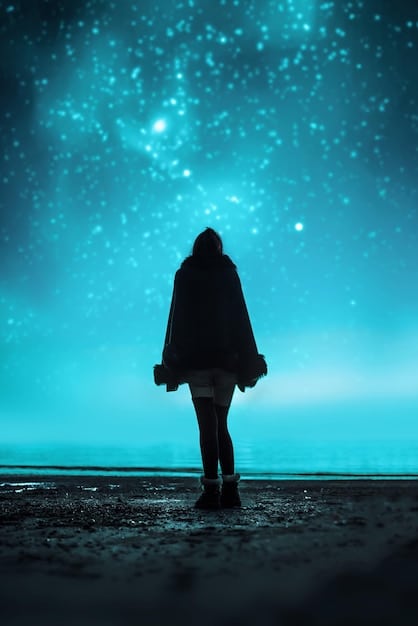
The Limits of Science
While science provides a framework for understanding the universe, it doesn’t have all the answers. Many people find it frustrating when science can’t explain certain personal experiences or observations. This can lead them to seek alternative explanations, including those offered by paranormal beliefs.
Personal Experiences and Anecdotes
Often, belief in the paranormal is rooted in personal experiences. A strange occurrence, an unexplainable feeling, or a story shared by a trusted friend or family member can have a lasting impact on an individual’s worldview.
- Ghostly Encounters: Many people report experiencing unexplained noises, apparitions, or other ghostly phenomena in their homes or at historical sites.
- Intuitive Feelings: Some individuals claim to have psychic abilities or heightened intuition, which they interpret as evidence of paranormal forces at work.
- Out-of-Body Experiences: These can lead individuals to believe in a separation between the physical and spiritual realms.
These personal experiences are powerful because they feel real and immediate, even if they lack scientific validation.
Psychological Factors Influencing Belief
Belief in the paranormal is not solely a matter of logic or evidence. Psychological factors can also play a significant role in shaping individuals’ perceptions and beliefs.
Comfort in Uncertainty
For some, the idea that there is more to the world than meets the eye can be comforting. In a world filled with uncertainty and anxiety, paranormal beliefs can offer a sense of hope or meaning.
Confirmation Bias
Confirmation bias is the tendency to seek out information that confirms existing beliefs while ignoring information that contradicts them. People who are predisposed to believe in the paranormal may be more likely to notice and remember events that support their beliefs, while dismissing or downplaying skeptical explanations.
Pattern Recognition
Humans are naturally wired to look for patterns, even when they don’t exist. This can lead people to see connections between unrelated events and interpret them as evidence of paranormal activity.
Understanding these psychological factors can shed light on why some individuals are more susceptible to paranormal beliefs than others.
Cultural Impact and Social Influence
Culture and social dynamics also play a crucial role in shaping beliefs about the paranormal. The beliefs of our families, friends, and communities can have a profound influence on our own perspectives.
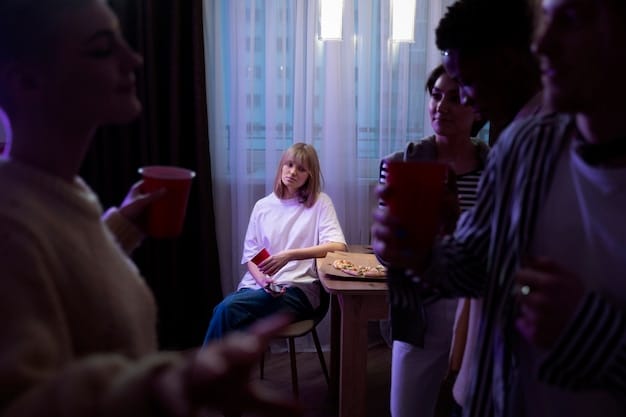
Family and Community Beliefs
Children often adopt the beliefs of their parents or caregivers. If a child grows up in a household where paranormal beliefs are prevalent, they are more likely to embrace those beliefs themselves.
Social Acceptance of Paranormal Beliefs
As paranormal themes become more common in media and popular culture, they also become more socially acceptable. People may be more willing to share their beliefs and experiences without fear of ridicule or judgment.
Online Communities and Paranormal Exploration
The internet has created opportunities for people with shared interests to connect with one another, regardless of their geographic location. Online communities dedicated to paranormal exploration can provide support, information, and a sense of belonging for individuals who are interested in the topic.
These cultural and social influences highlight the interconnectedness of beliefs and the way in which our perceptions of reality are shaped by the world around us.
The Skeptic’s Perspective
While a significant portion of Americans believe in paranormal phenomena, it’s important to acknowledge the skeptical perspective. Skeptics approach these claims with a critical eye, demanding evidence and rational explanations for unexplained events.
The Burden of Proof
Skeptics argue that the burden of proof lies with those who make paranormal claims. They contend that extraordinary claims require extraordinary evidence, and that anecdotal accounts and personal experiences are not sufficient to establish the reality of paranormal phenomena.
Alternative Explanations
Skeptics often offer alternative explanations for events that are interpreted as paranormal. These explanations might include psychological factors, environmental conditions, or simple misinterpretations of sensory information.
The Importance of Critical Thinking
Skeptics emphasize the importance of critical thinking and scientific reasoning when evaluating paranormal claims. They encourage individuals to question assumptions, examine evidence carefully, and avoid jumping to conclusions based on limited information.
The clash between belief and skepticism can lead to a more nuanced understanding of the complexities surrounding paranormal phenomena.
Future Trends in Paranormal Belief
The future of paranormal belief in America is likely to be shaped by a combination of factors, including scientific discoveries, technological advancements, and evolving cultural norms.
The Influence of New Technologies
New technologies are constantly emerging that could potentially impact our understanding of the paranormal. For example, advancements in virtual reality and augmented reality could create new ways for people to experience and interact with simulated paranormal environments.
Scientific Breakthroughs
Future scientific breakthroughs could either validate or debunk certain paranormal claims. Discoveries in areas like quantum physics or consciousness research could potentially shed light on the nature of reality and the potential for paranormal phenomena to exist.
Cultural Shifts and Evolving Beliefs
As society continues to evolve, attitudes towards the paranormal may also change. Shifting cultural norms and greater openness to alternative perspectives could lead to increased acceptance of paranormal beliefs.
The exploration of paranormal phenomena is an ongoing journey, filled with both mysteries and possibilities. Where this journey leads is yet to be seen, but what is certain is that these questions will continue to stimulate debate and inspire wonder for many seeking answers about this study : New Study Reveals 70% of Americans Believe in Paranormal Phenomena: What’s Driving the Trend?
| Key Point | Brief Description |
|---|---|
| 📺 Media Influence | Paranormal themes in TV, movies, and documentaries increase public interest. |
| ❓ Unanswered Questions | Science’s limits create openings for paranormal beliefs to fill the gaps. |
| 🧠 Psychological Factors | Uncertainty, confirmation bias, and pattern recognition influence beliefs. |
| 🧑🤝🧑 Cultural Impact | Family, community, and online groups shape paranormal beliefs. |
FAQ
▼
Paranormal phenomena include events or occurrences that cannot be explained by current scientific understanding, such as ghosts, UFOs, psychic abilities, and extrasensory perception.
▼
Belief in the paranormal varies by individual, but reasons include personal experiences, religious or cultural influences, psychological comfort, and a desire to understand the unexplained.
▼
Media portrayals of paranormal events have increased public awareness and interest, often shaping perceptions and fueling curiosity about the unexplained.
▼
Skepticism provides critical evaluation of paranormal claims, encouraging rational explanations and demanding evidence before accepting unexplained events as paranormal occurrences.
▼
Yes, numerous online communities exist where paranormal enthusiasts share experiences, discuss theories, and explore unexplained phenomena, fostering a sense of belonging and shared curiosity.
Conclusion
In conclusion, the recent study highlighting that 70% of Americans believe in paranormal phenomena underscores a complex interplay of media influence, unresolved scientific inquiries, psychological factors, and cultural dynamics. As technology and science evolve, so too will the landscape of paranormal beliefs, inviting ongoing exploration and debate.


